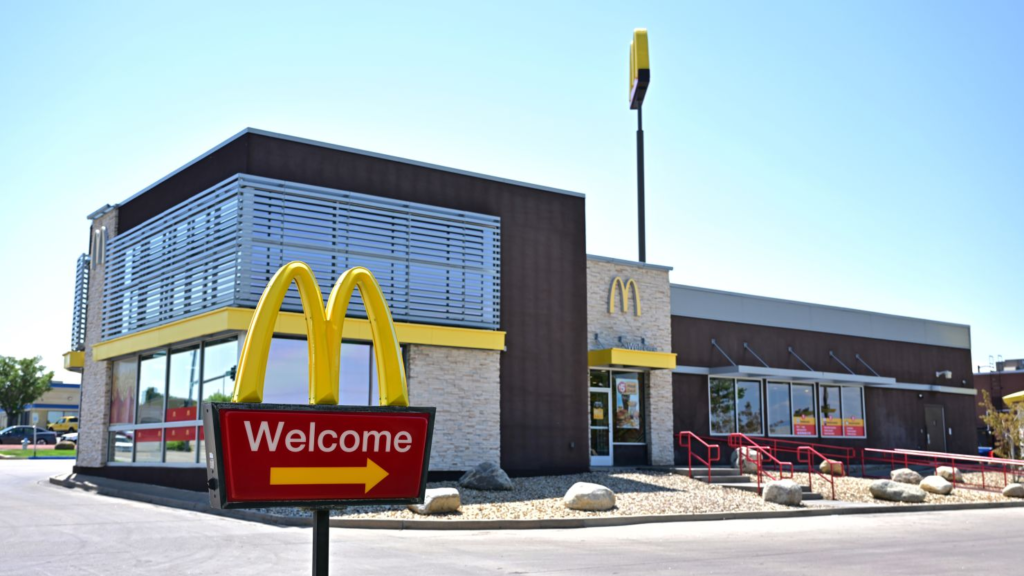A deadly outbreak of E. coli linked to McDonald’s Quarter Pounder hamburgers has resulted in at least one death and several others falling ill. The outbreak, spanning multiple states, has prompted swift action from McDonald’s and public health officials as they work to contain the spread and identify the contaminated ingredient.
The E. coli Outbreak: A Growing Public Health Concern
The E. coli outbreak connected to McDonald’s has garnered nationwide attention as more cases continue to emerge. According to the US Centers for Disease Control and Prevention (CDC), at least 49 people have been infected across 10 states, with 10 requiring hospitalization.
Tragically, one person has died due to complications from the infection. The outbreak, which has primarily affected individuals in Colorado and Nebraska, has been traced back to McDonald’s Quarter Pounder hamburgers, though the exact source of contamination remains under investigation.
E. coli bacteria, commonly found in contaminated food or water, can cause severe illness in humans. The bacteria produce toxins that lead to symptoms such as stomach cramps, diarrhea, and vomiting.
Read : Spraying $200 Trillion Worth Diamond Dust in Air Can Cool Earth
While most people recover within a week without needing medical treatment, some cases can result in life-threatening complications, particularly for vulnerable populations like young children, the elderly, and those with weakened immune systems.
In this instance, health authorities are racing against time to pinpoint the exact source of the E. coli contamination. Investigators are focusing on the ingredients used in McDonald’s Quarter Pounders, with early suspicions pointing to slivered onions and beef patties. Both items have been temporarily pulled from restaurants in certain states while the investigation continues.
Read : McDonald’s Worker Seen Drying a Dirty Mop Above the French Fry in Australia
The fast-paced nature of this outbreak has led public health officials to warn the public about the potential dangers of consuming these products, particularly in the affected states. In response, McDonald’s has taken immediate action to remove Quarter Pounders from its menu in several locations while continuing to work closely with federal and state agencies.
McDonald’s Response and the Role of Contaminated Ingredients
McDonald’s, one of the world’s largest fast-food chains, has been quick to respond to the crisis. The company has halted the sale of Quarter Pounders in states such as Colorado, Kansas, Utah, and Wyoming, as well as parts of Idaho, Iowa, Missouri, Montana, Nebraska, Nevada, New Mexico, and Oklahoma.
This decision came after preliminary findings suggested that a subset of the illnesses could be linked to slivered onions, supplied by a single distributor to three of McDonald’s regional distribution centers.
Cesar Piña, McDonald’s chief supply chain officer, emphasized that safety is the company’s top priority. In an internal memo posted on the company’s website, Piña assured customers that McDonald’s was taking “swift and decisive action” to mitigate the spread of the outbreak.
He further explained that all local restaurants in the affected areas have been instructed to stop serving slivered onions and to temporarily remove the Quarter Pounder from their menus. McDonald’s has also paused the distribution of slivered onions to avoid further contamination while investigators work to confirm the exact cause of the outbreak.

While McDonald’s has removed some of its key ingredients, other menu items remain unaffected. Piña reassured the public that burgers like the Cheeseburger, Big Mac, and McDouble are still available for purchase, as the contamination is believed to be isolated to certain products.
The company is actively working to replenish its supply of Quarter Pounders, but in the meantime, alternative beef products will continue to be offered to customers.
McDonald’s quick action in removing potentially contaminated items from its menu highlights the importance of food safety in preventing further cases of foodborne illness.
However, the scope of the outbreak raises serious concerns about the potential vulnerabilities in the fast-food industry’s supply chains, especially when dealing with fresh ingredients that can harbor harmful bacteria if not properly handled.
Broader Implications of Foodborne Illness Outbreaks
The recent E. coli outbreak tied to McDonald’s is part of a growing trend of foodborne illness incidents in the United States. Earlier this month, 12 million pounds of meat were recalled over possible listeria contamination, adding to the wave of concerns surrounding food safety.
Listeria, like E. coli, can cause severe illness and has led to hospitalizations and fatalities in the past. This summer alone, dozens of people were sickened, and several died due to listeria poisoning linked to Boar’s Head deli meats.
These incidents serve as a stark reminder of the ongoing challenges facing food safety protocols in the country. Despite strict regulations and rigorous testing procedures, foodborne illness outbreaks continue to occur, often with devastating consequences.
The fast-food industry, in particular, faces unique risks due to the high volume of food produced and the rapid turnover of ingredients in restaurants across the country.
For consumers, these outbreaks underscore the importance of staying informed about food recalls and practicing food safety at home. The CDC recommends that individuals pay close attention to any public health warnings, particularly if they have consumed potentially contaminated products.
Symptoms of foodborne illness can vary, but anyone experiencing extreme stomach cramps, diarrhea, or vomiting should seek medical attention promptly, especially if the symptoms persist for more than a few days.

While the majority of foodborne illnesses resolve on their own, some cases can lead to serious complications. In the case of E. coli, certain strains can cause hemolytic uremic syndrome (HUS), a severe condition that can result in kidney failure, particularly in children and older adults. This is why it is crucial for public health officials and food companies alike to take swift action when an outbreak is detected.
McDonald’s response to the E. coli outbreak has been rapid, but the investigation is ongoing, and further developments are expected. In the meantime, the company continues to collaborate with federal and state agencies to determine the source of the contamination and prevent future outbreaks.
For now, customers in affected areas will have to forgo their Quarter Pounders until the investigation is complete and the products are deemed safe for consumption again.
As the investigation continues, public health experts urge individuals who have eaten McDonald’s Quarter Pounders in the affected regions to monitor themselves for symptoms of E. coli infection. The CDC has set up hotlines and online resources to provide up-to-date information on the outbreak and any further developments in the investigation.
The McDonald’s E. coli outbreak is a reminder of the significant health risks posed by contaminated food. While the company has taken swift action to address the problem, the incident highlights the broader challenges facing food safety in the fast-food industry and the need for continued vigilance to protect public health.

